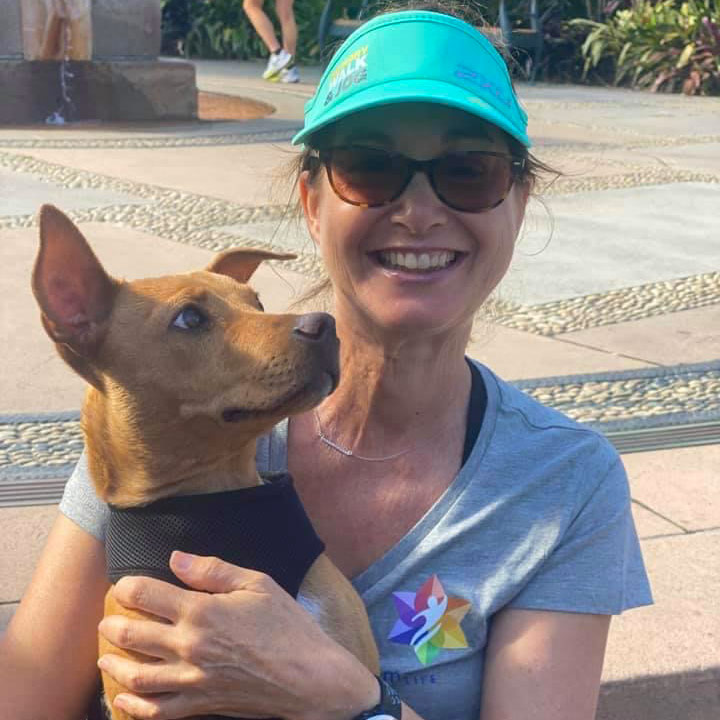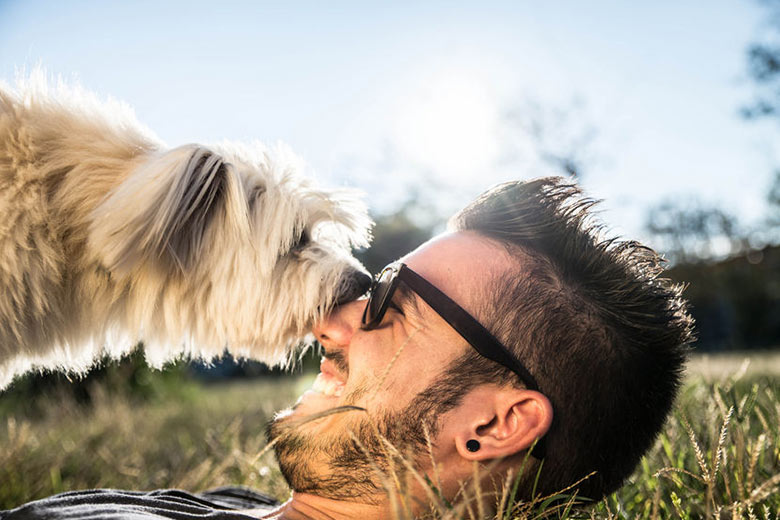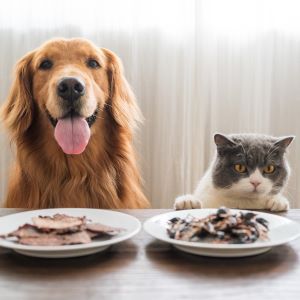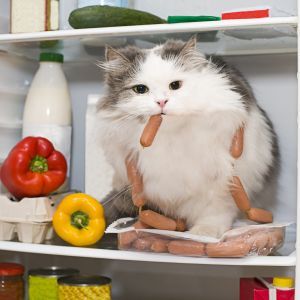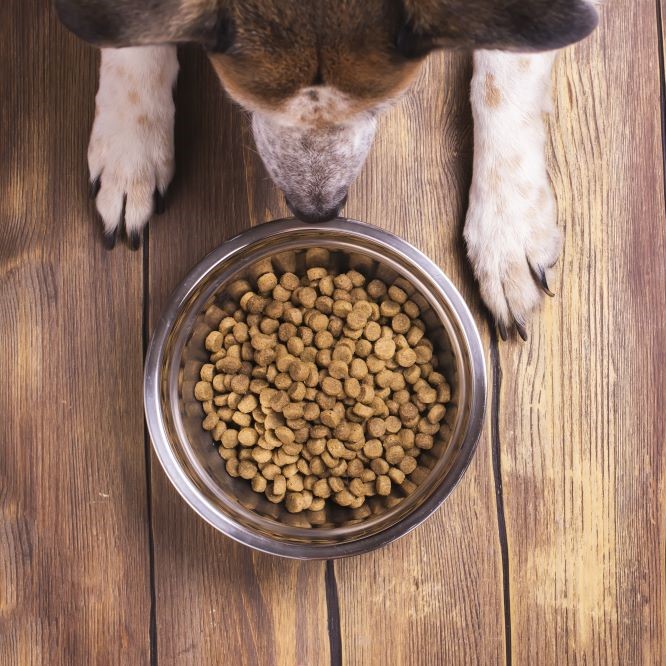Emergency dog food: Safe foods for dogs to eat
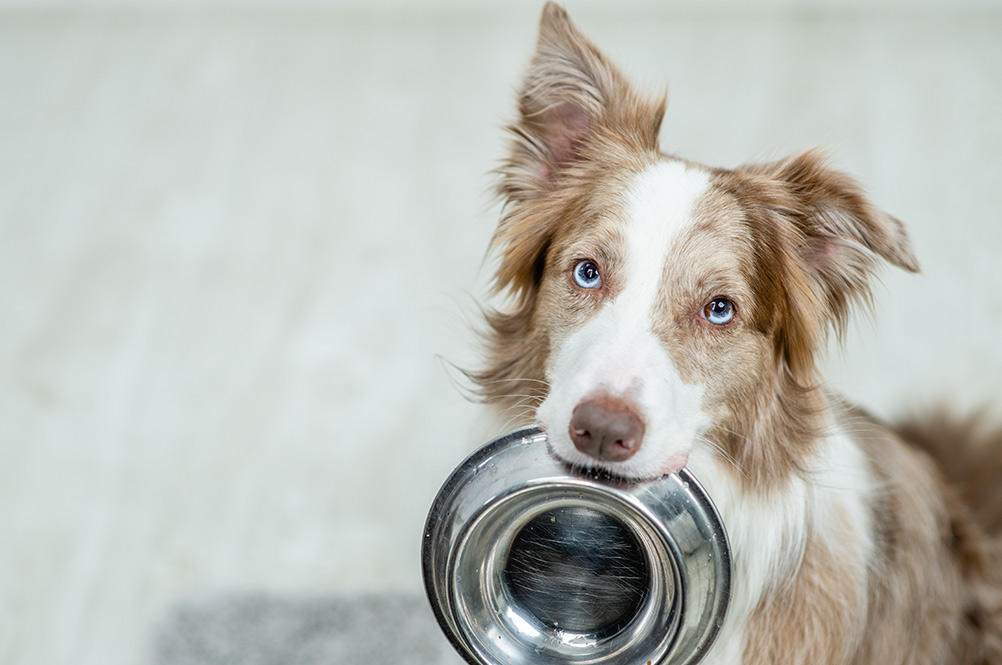
Summary
If you are out of dog food, safe stop-gaps include plain cooked chicken with rice, eggs, simple grains and selected vegetables or fruits. Choose lean protein and complex carbs, avoid high salt and fat, and steer clear of toxic foods. Introduce changes gradually and monitor for tummy upsets. Set up reliable deliveries to prevent shortages and ask your vet before switching diets or if your dog has special needs.
“Help! I ran out of dog food what can I use?”
While our pets can be a great source of comfort and stress relief, they can also cause us additional worry, particularly when it comes to their care and well-being.
Pet food may be high on the list of potential causes of concern for many owners, particularly if they are running low or have run out altogether. This situation often leaves many pet owners questioning what human foods dogs can eat, and what they could use for emergency dog food.
So, what exactly are your options if you don’t have any of Fido’s or Fifi’s usual food available?
Ordering from an online supplier
Ordering dog food online is becoming an increasingly popular option; however, there is no guarantee that, if you have left it a bit late, your order will arrive before you run out of supplies.
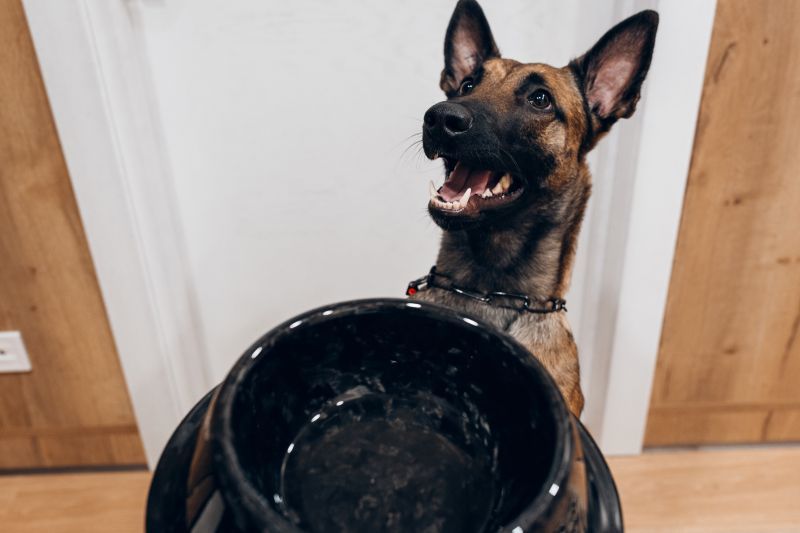
A good option to ensure that you don’t run out in the future, though, is to set up an “auto-delivery”. Just make sure that you calculate the frequency of delivery correctly, so that you aren’t caught out again! Allow for one week less than you anticipate between deliveries, to accommodate any unforseen delays.
Switching brands of pet food
If you decide to switch brands, the most important advice we can give is to plan ahead and not wait until you’re already out of your pet’s regular food. It’s best to switch brands gradually, substituting a small portion of the new food for the old food each day. If you are unsure if a potential new brand is suitable for your dog’s needs, be sure to check with your vet before stocking up with large quantities – and also with Fifi to make sure she is happy to eat it!
Substituting human foods
If you are completely out of dog food, don’t panic! There are sure to be plenty of nutritious options in your fridge or pantry that you can safely give to your dog as emergency dog food. Just be sure to check our guidelines below first, as there are also some foods there that could make her seriously ill.
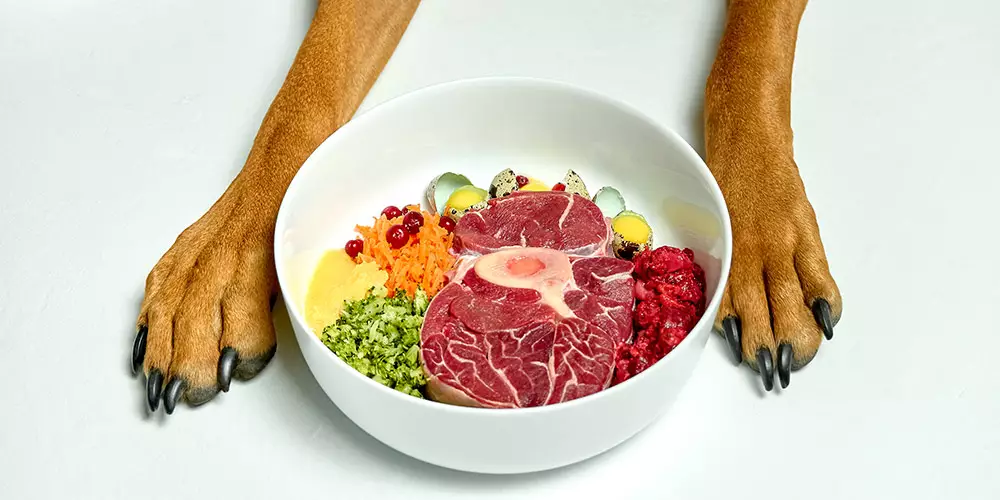
Always ask yourself the following 3 questions before raiding the fridge for Fido or Fifi:
- Does this food contain a lot of salt and/or fat, which could cause excessive thirst and tummy troubles?
- Does my dog have any special dietary needs or allergies that this food may affect?
- Is this food on the list of dangerous foods for dogs? If you are unsure, check the Pet Poison Helpline or other online resource first.
Unsure how serious it is?
Bow Wow Meow policyholders can get access to trusted vet care anytime, anywhere, at no additional cost. Connect to an experienced Australian registered vet via video call, 24/7. Whether it’s providing vet advice, setting up at-home treatment plans, or confirming if you need to visit a vet in person, you can get help when you need it.
Find out more about our pet insurance cover options.
Good for humans, good for dogs – what you can safely feed your dog
Unless you’ve been given any special dietary guidelines by your vet, what you should aim for is a good balance of lean protein and complex carbohydrates. If you’re a meat-eating home, then chances are you have some good sources of protein on hand, whether fresh, frozen or tinned. Another protein that makes a perfect emergency meal for your dog is eggs.
Leftovers are a great option as foods dogs can eat, as long as they meet the three criteria above. If you have any recently cooked grains, plain meats, and/or veggies in the fridge, it can be as simple as throwing a handful of each in your dog’s bowl. If you don’t have suitable leftovers, one of the quickest, easiest dog meals you can prepare is plain, cooked chicken with rice. Low-sodium beef or chicken stock is a nutritious and tasty addition to any home-cooked dog meal.
Dogs don’t have sophisticated palates, so plain and simple works best. Many canned and dry goods are great for homemade emergency dog food. As a last resort, you can just make your dog a bowl of cooked oats. But keeping in mind that optimal nutrition requires both protein and carbohydrates, here’s a list of common pantry items you can mix and match for dog food alternatives.
Beef, lean and plainly cooked – Avoid the fatty parts of the meat, bones and recipes containing any items from the dangerous foods list, any strange vegetables, oils, heavy seasoning or wine.
Bread – one or two slices of whole grain bread
Broth – low-sodium beef, chicken, or vegetable broth. Bone broth is also a very nutritious addition to any dog meal.
Cheese – mild cheese like Colby or cheddar
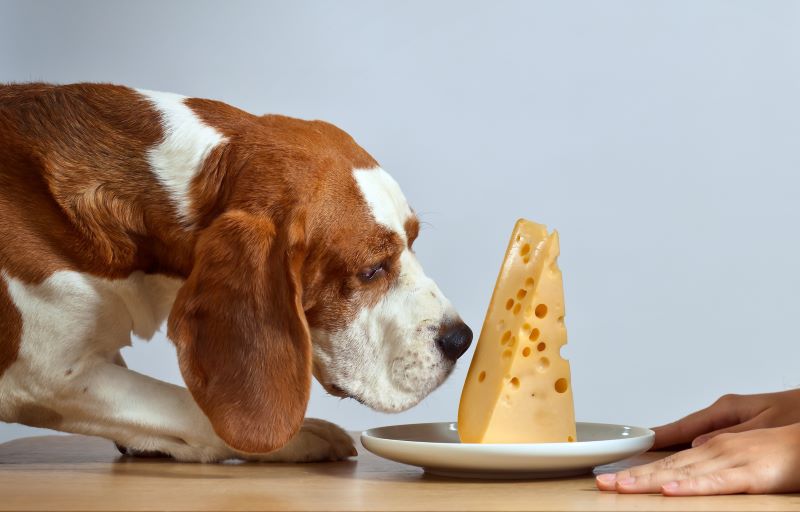
Chicken meat – Cooked chicken is filled with good fats and proteins that dogs need to maintain a healthy weight and energy level. Avoid the fatty parts of the meat, including the skin, and recipes containing any items from the dangerous foods list, strange vegetables, oils, heavy seasoning or wines. Remove all the bones too.
Eggs – A great protein that can be eaten raw or scrambled with a little olive oil and served plain or with cooked grains or a side of veggies.
Fish – Salmon is a healthy source of protein and a good source of omega 3 fatty acids, which are good for your dog’s coat and skin health. Canned fish packed in water, rinsed and drained thoroughly, is another good option.
Fruit – Bananas, blueberries, strawberries, raspberries and apple slices (without the seeds) all make a great healthy snack and an excellent source of vitamins. Cut up and remove all the seeds, stem and leaves.
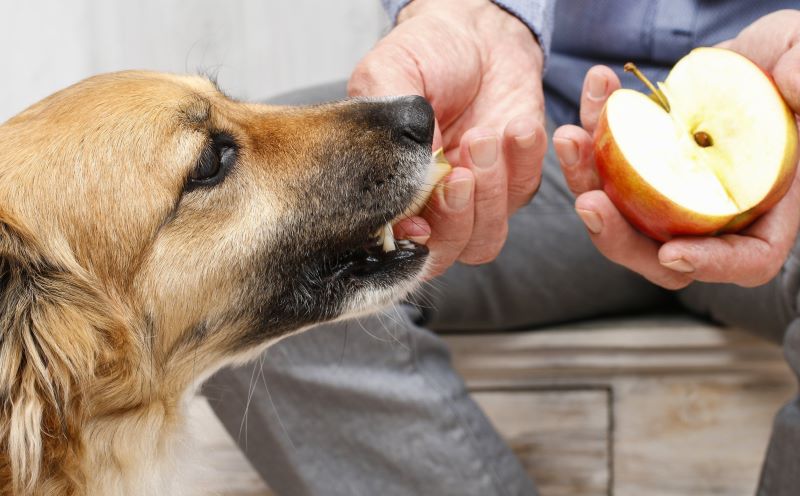
Grains – plain, cooked grains like white or brown rice, oats or couscous
Peanut butter – a great source of protein and fibre – but make sure to choose an all-natural brand with no added oils, sweeteners or salt, and feed in moderation as it is quite rich and can upset dog’s tummies.
Vegetables – fresh spinach or carrots, steamed or boiled peas, beans, broccoli, or corn, cooked potatoes or sweet potatoes. Frozen and canned veggies of the above varieties are also fine.
Yogurt – Natural, plain or Greek yogurt acts as a pro-biotic and provides a great source of protein. Avoid sweetened varieties, including those sweetened with ‘natural’ sugars.
A note about dairy products: Dogs lack lactase, the enzyme that is needed to digest the lactose contained in dairy products. While not toxic to dogs, dairy products can disrupt their digestive system and even trigger food allergies. However, hard yellow cheeses and plain yogurt are low in lactose and many dogs are able to tolerate these without any ill effects.
A note about cooked bones: While it seems natural to give a dog a bone, cooked bones are, in fact, choking hazards for dogs. They can splinter, causing stomach lacerations and obstructions within the digestive system.
Human foods dangerous for dogs – what you should never feed your dog
In general, you should avoid feeding your dog highly sweetened, salted, spicy or oily foods, as well as processed, packaged foods which are likely to contain artificial colourings, flavourings and preservatives. While many human foods are lacking in necessary nutrients – think ‘treats’ and fast foods – others can be downright dangerous, and even deadly, to dogs.
Because it is difficult to predict the costs of veterinary care, it can help to have measures in place to help prepare for the unexpected. Pet insurance can help by covering a portion of the eligible vet bill if the unexpected does happen.
Get a quote for 2 months free pet insurance for your puppy or kitten in their first year.
The foods listed below are all common human foods that are dangerous foods for dogs and should never be fed to them, even in tiny amounts. However, this is by no means a comprehensive list, so if you are unsure about the safety of a particular food, please check the Pet Poison Helpline or other online resource before adding it to your dog’s bowl.
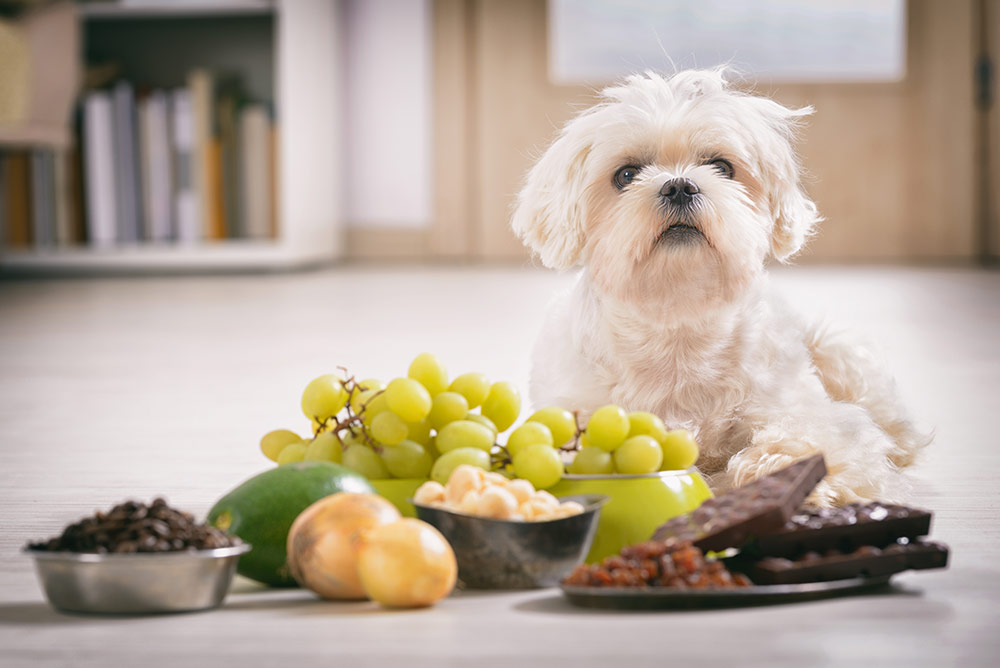
- Alcohol – Wine, beer and other alcohol can be toxic, and even deadly, for to your dog. Logically, all foods or drinks containing even a small amount of alcohol are bad for dogs. Alcohol is rapidly adsorbed into the dog’s bloodstream and just a drop can cause dangerous declines in blood sugar, blood pressure and body temperature, with the effects being even worse in smaller breeds.
- Avocados – Although super healthy for us humans, avocado contains persin, which is known to give dogs an upset stomach, while ingestion of the pip can potentially cause an obstruction in the digestive tract, which can be fatal.
- Caffeine/coffee – A small amount of caffeine can affect the heart, stomach, intestines and nervous system, while a large dosage can be fatal. Caffeine is not just found in coffee and tea – other caffeine-containing foods include energy drinks, energy bars, chocolate, cocoa, colas and some medications, including diet pills, pain killers and cold medicines.
- Chocolate and cocoa – Most pet owners are aware that chocolate is harmful to dogs. The reason is that chocolate contains theobromine, which is toxic for dogs. Generally, the darker the chocolate, the greater its toxicity. Chocolate may also contain nuts, fats and caffeine, all of which are also on the list of what not to feed your dog.
- Garlic, onions, chives and leeks – These flavoursome foods are all members of the Allium family and are highly toxic to dogs. Ingestion of just a small amount can cause gastrointestinal irritation and oxidative damage to the red blood cells, which can lead to anaemia. Even in cooked, powdered or dehydrated form, they can be toxic, although garlic is about 5 times more potent than onion.
- Grapes and raisins – Both grapes and raisins need to be kept away from your dog at all costs. They can cause acute kidney failure in most breeds, reducing the ability to produce urine and thereby filter toxins out of the body. Ingesting just a few can be extremely harmful, depending on the size of your dog.
- Green or raw potatoes – While a plain baked or boiled potato is safe for your dog, do not allow him to eat any raw potatoes or any potato plants from your pantry or garden. This is because raw green potatoes contain a substance called solanine which can be toxic to some dogs, resulting in “green potato poisoning”.
- Macadamia nuts – Nuts are high in fat content, which can cause stomach upsets and pancreatitis in your dog. Some nuts, including macadamias and mouldy walnuts, can be highly toxic and cause severe poisoning – just a handful of raw or roasted macadamias can make your dog really sick. Chocolate with nuts delivers a double blow and is high on the list of human foods to avoid.
- Mushrooms – While there are several thousand species of mushrooms, only a small number are known to be toxic. These can cause severe problems to various organ systems, including the kidneys, liver and brain, and can even result in death. All mushroom ingestion should therefore be considered toxic to dogs.
- Rhubarb and rhubarb leaves – Rhubarb is a vegetable that is often used in pies, jams, sauces and juice. The leaves and stems contain soluble oxalates which can induce poisoning if ingested in large enough quantities, triggering abnormalities of the nervous system, kidneys and digestive tract. Rarely, acute renal failure can result.
 Seeds from fruits like apples, peaches, plums, apricots and cherries – The seeds, as well as the stems and leaves, of these common fruits contain cyanide, which is poisonous if consumed, while the larger pips could cause intestinal obstruction.
Seeds from fruits like apples, peaches, plums, apricots and cherries – The seeds, as well as the stems and leaves, of these common fruits contain cyanide, which is poisonous if consumed, while the larger pips could cause intestinal obstruction.- Tobacco – Exposure to nicotine in tobacco initially causes low heart and respiratory rates which then change to over-stimulation. It can ultimately result in the animal’s death.
- Xylitol – This sweetener or sugar substitute found in many varieties of chewing gum, candy, baked goods, toothpaste and vitamins, is near the top of the list of foods to avoid. It can cause the rapid release of insulin in dogs and result in hypoglycaemia. In some cases, xylitol poisoning can lead to liver failure within a few days of ingestion.
In summary
There’s no need to stress if you run out of dog food for a few days, or don’t want to dip into your emergency supplies. If you follow the above guidelines, you can safely feed your dog a variety of wholesome, nutritious meals from the staples in your fridge, freezer or pantry. Just be sure to check first if there is any foodstuff you don’t know for sure is safe for dogs.
See our article Good and bad human foods – What to feed and what to not feed your dog.
Bow Wow Meow Pet Insurance can help protect you and your dog should an unexpected trip to the vet occur.
-
Find out more about our dog insurance options
-
Get an online pet insurance quote
Bow Wow Meow is proud to have been awarded winner of Canstar’s ‘Most Satisfied Customers’ Award in the Pet Insurance category for both 2024 and 2025!
Bow Wow Meow is proud to have been chosen as Product Review’s Pet Insurance Award Winner every year from 2018 to 2025! This is based on 2,995 independent customer reviews (as at 21/01/2025), with an overall rating of 4.3*
Google Review rating = 4.5* (based on 968 reviews)
Trust Pilot rating = 4.6* (based on 531 reviews)
Bow Wow Meow is proud to have been chosen as Product Review’s Pet Insurance Award Winner every year from 2018 to 2025! This is based on 2,995 independent customer reviews (as at 21/01/2025), with an overall rating of 4.3*
Google Review rating = 4.5* (based on 968 reviews)
Trust Pilot rating = 4.6* (based on 531 reviews)
Bow Wow Meow has been chosen as a winner in the Finder Pet Insurance Awards 2024. Finder’s panel of experts analysed over 140 quotes to award our Ultimate Care Plan the winner of the “Pet Insurance – Value” category.

